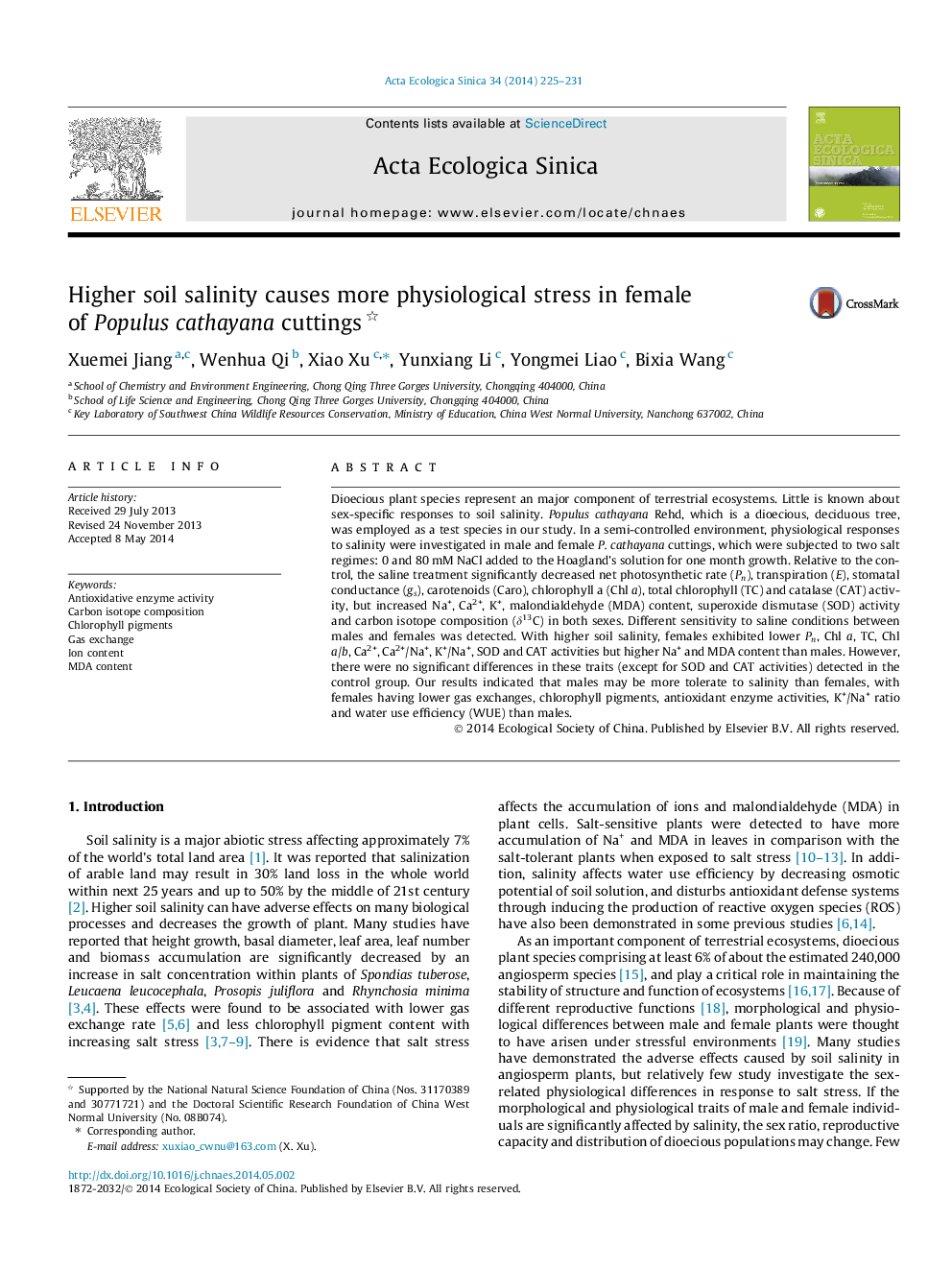| Article ID | Journal | Published Year | Pages | File Type |
|---|---|---|---|---|
| 10179843 | Acta Ecologica Sinica | 2014 | 7 Pages |
Abstract
Dioecious plant species represent an major component of terrestrial ecosystems. Little is known about sex-specific responses to soil salinity. Populus cathayana Rehd, which is a dioecious, deciduous tree, was employed as a test species in our study. In a semi-controlled environment, physiological responses to salinity were investigated in male and female P. cathayana cuttings, which were subjected to two salt regimes: 0 and 80 mM NaCl added to the Hoagland's solution for one month growth. Relative to the control, the saline treatment significantly decreased net photosynthetic rate (Pn), transpiration (E), stomatal conductance (gs), carotenoids (Caro), chlorophyll a (Chl a), total chlorophyll (TC) and catalase (CAT) activity, but increased Na+, Ca2+, K+, malondialdehyde (MDA) content, superoxide dismutase (SOD) activity and carbon isotope composition (δ13C) in both sexes. Different sensitivity to saline conditions between males and females was detected. With higher soil salinity, females exhibited lower Pn, Chl a, TC, Chl a/b, Ca2+, Ca2+/Na+, K+/Na+, SOD and CAT activities but higher Na+ and MDA content than males. However, there were no significant differences in these traits (except for SOD and CAT activities) detected in the control group. Our results indicated that males may be more tolerate to salinity than females, with females having lower gas exchanges, chlorophyll pigments, antioxidant enzyme activities, K+/Na+ ratio and water use efficiency (WUE) than males.
Keywords
Related Topics
Life Sciences
Agricultural and Biological Sciences
Ecology, Evolution, Behavior and Systematics
Authors
Xuemei Jiang, Wenhua Qi, Xiao Xu, Yunxiang Li, Yongmei Liao, Bixia Wang,
